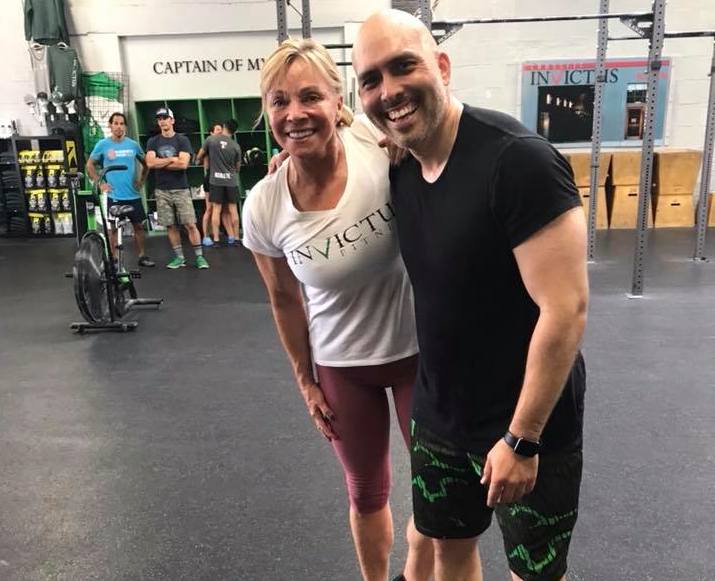
Watch That Self-Talk
Written by Invictus Member Jay Morrison
We all know how important our head-game is to our success as athletes. A huge component of building mental fitness is awareness of, and control over, our self-talk. Self-talk is our automatic thoughts, our running inner dialogue about ourselves, the world, and other people. Sometimes our self-talk is conscious, but sometimes it goes by so lightning fast that we barely notice it at all. And because of that, sometimes our self-talk is on-point, while at other times it’s full of errors and distortions. Self-talk is important all of the time – inside the gym and outside the gym; before, during, and after workouts. Taking a moment to think about different types of self-talk, and how we might use self-talk even more deliberately and effectively, may help us max that next lift, hit that endurance milestone, or perfect that new gymnastics skill.
Motivational Self-Talk
When you look at the workout of the day, are you someone who gets a little anxious? Some butterflies in the stomach when you see that 30-minute AMRAP with intervals on the Devil’s Tricycle alternating with burpee box-jumps? Or, are you the very opposite – no butterflies, but fatigue? Do you get tired just thinking about it? These emotions may have a lot to do with your self-talk. Motivational self-talk is the kind that helps us manage these emotions – to either calm down and reduce our anxiety or insecurity, or to get energized and pumped-up, to generally turn the volume up or down on our arousal level. Thinking “I can do this!” or, “no matter my rounds and reps, I’m going to redline this thing!” are pre-workout examples, and sometimes a simple, “go, go, go!” will fit the bill in the middle of an AMRAP.
Instructional Self-Talk
Instructional self-talk helps us with execution, such as “reach for the ground!” when doing those box-jumps, “stay tight!” during that back squat, or “butt down!” right before the lift-off for that snatch. Instructional self-talk may be especially helpful, possibly more helpful than motivational self-talk, for complex motor tasks (e.g., all those Oly lifts), as opposed to gross motor or endurance tasks (e.g., running), where motivational self-talk may be more helpful (“Keep going! You’ve got this!”). Instructional self-talk aids us in focusing when learning new tasks – sometimes more elite performers get stuck in “analysis paralysis,” but for most of us remembering and repeating that key cue (“push up on the bar!”) can aid tremendously in perfecting our form and hitting that fast lift with precision. These are great nuggets to get from coaches – when getting instructed on form, figure-out those key words that remind you of what you most need to remember.
Self-Talk as Evaluation
Bottom-line: keep it positive. Positive self-talk, like “You’re crushing this!” or “That was so fast!” or “That was amazing grit and effort!” has consistently been shown to enhance performance across a range of efforts. Watch-out for negative self-talk, like, “That was a terrible lift!” or, “I feel awful today!” or, “This will never end, I have forever left to go!” And, be especially wary of any statement including the word “should,” such as “I should be stronger by now.” or “I should have been able to hit that lift.” The “shoulds” can drain you of your mental energy quickly. Don’t should on yourself. Accept what was and move forward instead.
Log Your Self-Talk
When you’re writing down your results from your lifts in your fitness diary, make a conscious commitment to make daily notes about your self-talk for one week. Think about what you’re saying to yourself as you approach your training, and commit to noticing what you’re telling yourself at different points during the workout. And just like your lifting technique, look for patterns, highlight anything you believe is helping you and expand on that if possible, and especially take note of anything that may need modification.
Some people believe that mental fitness is like personality or being athletically gifted, genetically: it just is what it is, some have it while others do not. But this is not the case. Mental fitness is a skill set, and like any skill set it can be learned, practiced, and improved upon. Keep flexing that brain muscle!
Also Check Out…